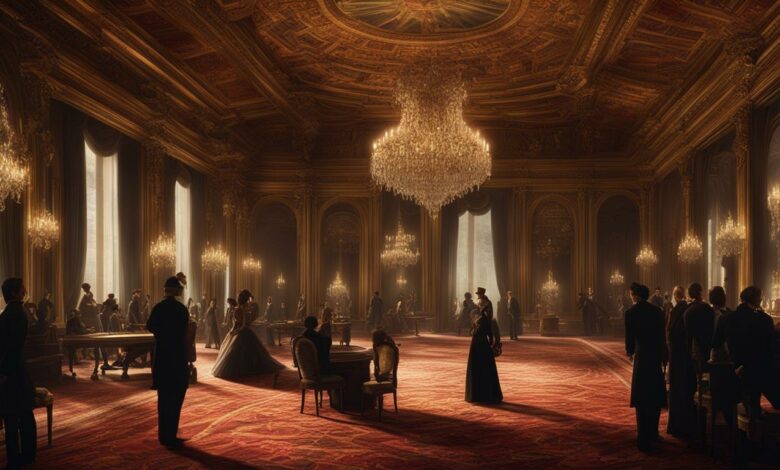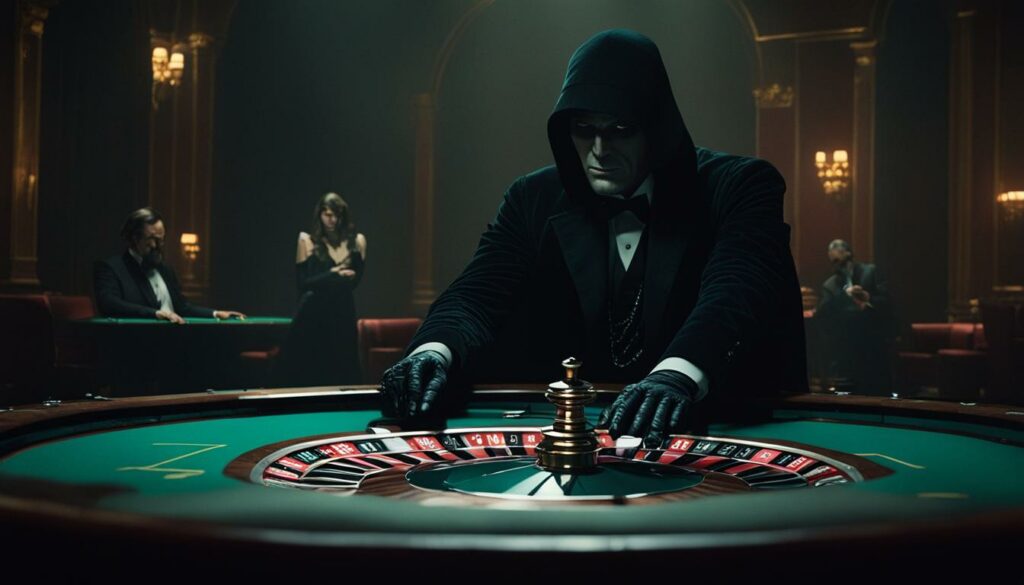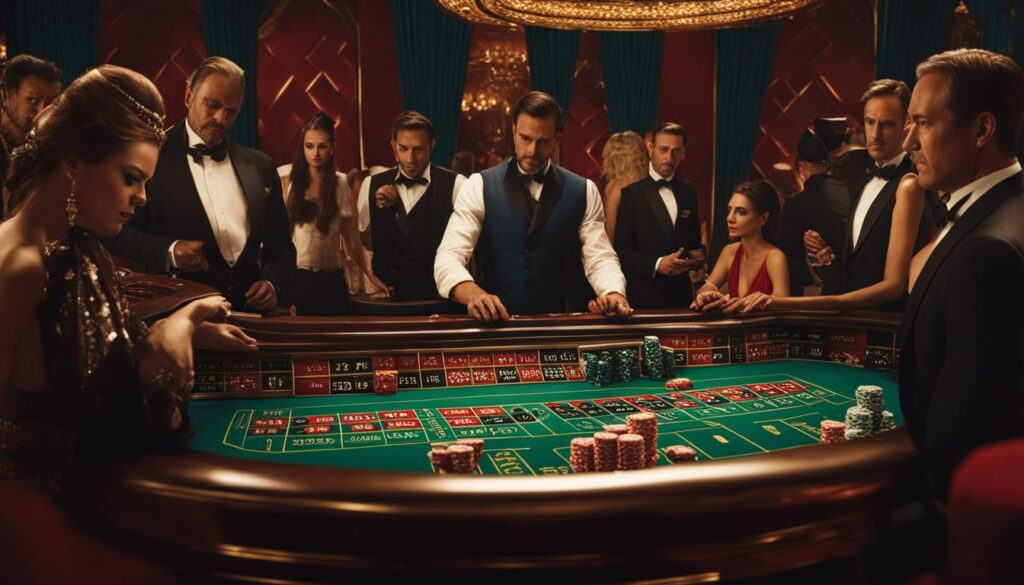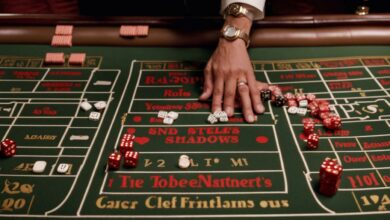Creator of Roulette: Unveiling the History

Welcome to a fascinating journey through time as we unveil the intriguing history of roulette. This iconic casino game has captured the hearts of millions of players across the globe, but who made roulette and how did it come into being? In this section, we will explore the origins of roulette, trace its evolution through different cultures and time periods, and unravel the mystery of its creator. Get ready to discover the fascinating story behind one of the most beloved casino games of all time.
As we delve deeper into the history of roulette, we will examine the different theories surrounding its invention and the potential individuals or groups responsible for its creation. The origins of roulette are steeped in mystery and intrigue, making our journey through time all the more exciting. Join us as we explore the intricate details of this timeless classic.
Through this section, we aim to provide you with a comprehensive and informative overview of the history of roulette. Examining its evolution over time is crucial to understanding why it remains such a popular game today. Stay with us as we unravel the mystery of the creator of roulette and explore the origins of this exciting and dynamic game.
Get ready to embark on a journey through time and discover the fascinating world of roulette.
Origins of Roulette: A Journey through Time
The history of roulette game origin is rich and complex. Although the exact details are unclear, many historians believe that the game of roulette was invented in France by a mathematician named Blaise Pascal in the 17th century. However, others argue that the origins of roulette can be traced back much further.
The game of roulette has evolved over time, taking different forms in various cultures before ultimately becoming the game we know today. The earliest forms of roulette were believed to have been played in China and ancient Rome, where games of chance were popular forms of entertainment.
The game of roulette began to take shape during the 18th and 19th centuries in Europe, with many variations emerging in different countries. The modern game of roulette, with its recognizable wheel and betting table, was developed in France during the 19th century.
There were many influences that contributed to the creation of the modern-day roulette game. Some historians suggest that the game was based on an Italian board game called Biribi, while others believe that it was based on an English game called Roly Poly. Regardless of its true origins, roulette has become an iconic casino game enjoyed by millions of people around the world.
The Earliest Forms of Roulette
The game of roulette has its roots in ancient China and Rome, where games of chance and strategy were popular forms of entertainment. Many historians believe that the first forms of roulette were played using a wheel, which was spun to determine the outcome of the game.
In China, a game called Baige Piao was played using a numbered board and several small objects that were rolled into the board. The object of the game was to get one’s objects into a certain pattern on the board.
In ancient Rome, a game called Rota was played using a wheel that was spun and used to determine the outcome of the game. The game was popular among soldiers and citizens alike, and played a key role in the development of modern-day roulette.
Roulette’s Emergence in Europe
The game of roulette began to take shape during the 18th and 19th centuries in Europe, with many variations emerging in different countries. The French version of the game, known as “Roulette” or “Little Wheel,” became the most popular, leading to the development of the modern-day version of the game.
During this time, many different variations of the game began to emerge, with different rules and betting options. However, most of these variations shared a common feature: a numbered wheel with either 37 or 38 slots, with each slot corresponding to a specific number, color, or betting option.
The Development of Modern-Day Roulette
The modern game of roulette was developed in France during the 19th century. A man named Francois Blanc, who owned a casino in Monte Carlo, introduced the single “0” version of roulette to attract more players to his casino. This version of the game became the standard form of roulette, and it is still played in many casinos around the world today.
Since then, the game of roulette has continued to evolve and adapt, taking on new variations and betting options. Today, roulette remains one of the most popular casino games in the world, enjoyed by players of all skill levels.
The Inventor of Roulette: Unraveling the Mystery
The origin of roulette is shrouded in mystery, and theories regarding its invention abound. While some credit the Chinese with inventing roulette as a means of divination, others argue that it originated in ancient Rome.
Nevertheless, most historians agree that the modern form of the game emerged in 18th-century France, where it quickly gained popularity among the nobility.
One of the most widely accepted theories is that the inventor of roulette was Blaise Pascal, a French mathematician, physicist, and inventor credited with groundbreaking contributions to the theorems of projective geometry and probability theory.
“The fact is that Pascal, a gifted scientist and philosopher in his own right, invented the game back in the mid-17th century as a byproduct of his ongoing effort to devise a perpetual motion machine.”
Another contender for the title of the creator of roulette is a French monk named Dom Perignon. As the legend goes, the famous winemaker added the numbers 0-36 to a roulette wheel as a means of keeping track of his wine blends.
Despite these theories, however, the true origins of roulette remain a mystery, and it is likely that the invention of this beloved casino game was a collaborative effort involving many individuals over time.

The Evolution of Roulette: From Its Birth to Modern-day
The history of roulette is filled with intrigue, and the evolution of the game has been just as exciting. From its humble beginnings to the modern-day casino staple, roulette has undergone many changes over the years. Let us explore its evolution and how the game has adapted over time.

The Origins of Roulette
Roulette has roots that can be traced back to 17th century France. The early versions of the game featured two slots reserved for the bank, numbered 0 and 00, and a slot for the players, numbered 1 to 36. The arrangement of the numbers on the wheel was different from the modern layout, but the basic premise of the game was similar.
As roulette gained popularity, different regions introduced their own variations of the game. In Germany, for example, they added a unique betting option called “in prison” that gave players a second chance if the ball landed on the 0 slot. In America, the game was modified to include two 0 slots instead of one. This made it less advantageous for players and increased the house edge.
The Modern Game of Roulette
Today, roulette is played around the world in both brick-and-mortar and online casinos. While the game’s basic rules remain the same, there are different variations that offer unique betting options and layouts.
| Version of Roulette | Description |
|---|---|
| European Roulette | Features a single 0 slot and offers better odds than American Roulette. |
| American Roulette | Features two 0 slots and has a higher house edge than European Roulette. |
| French Roulette | Similar to European Roulette, but features different betting options and a slightly different layout. |
The online gaming industry has also contributed to the evolution of roulette, offering players the opportunity to play the game on their desktop or mobile devices. Online casinos have also introduced live dealer games, allowing players to experience the excitement of playing roulette with a human dealer, rather than relying on a computer program.
The evolution of roulette has brought many changes to the game, but its popularity remains as strong as ever. Players around the world continue to be captivated by the thrill of the spinning wheel and the chance to win big.
A good website with promotions must be 89ufabet.
Conclusion
The history of roulette is a captivating tale that takes us on a journey through time. Although the exact identity of its creator remains shrouded in mystery, we explored various insights that may shed light on this enigma. From its early origins to modern-day, roulette has undergone a remarkable transformation while still retaining its essence.
By tracing the evolution of roulette, we discovered the impact of cultural, societal, and technological changes on the game. We learned about the subtle rule modifications, table layouts, and betting options that made roulette what it is today. This in-depth exploration of roulette’s history gives us a deeper understanding and appreciation for the game.
Whether you’re an avid roulette player or a curious enthusiast, knowledge of the game’s rich history adds a layer of excitement to your experience. Let this journey through the origins and evolution of roulette inspire you to explore the game further and to appreciate its timeless appeal.
FAQ
Who made roulette?
The exact creator of roulette is still a subject of debate and speculation. While there are several theories surrounding its invention, the true identity of the game’s original creator remains unknown.
What is the history of roulette?
Roulette has a rich history that dates back centuries. The game’s roots can be traced to various ancient civilizations, including the Romans, Greeks, and Chinese. Over time, roulette evolved and gained popularity across different regions, eventually becoming the iconic casino game we know today.
What are the origins of roulette?
The origins of roulette can be attributed to different cultures and time periods. Early versions of the game appeared in Europe in the 17th century, with influences from Italian, French, and English games. These early iterations laid the foundation for the modern-day roulette we enjoy today.
Who created the game of roulette?
The creation of roulette is often credited to Blaise Pascal, a French mathematician, physicist, and inventor. While Pascal’s precise involvement and role in the development of roulette are uncertain, some historians believe that his experiments with perpetual motion devices may have influenced the creation of this iconic casino game.
What is the history of roulette?
The history of roulette is a fascinating journey through time. From its early origins in ancient civilizations to its modern-day popularity, the game has undergone numerous transformations. Over the years, the rules, layouts, and betting options of roulette have evolved, adapting to the preferences of players and the regions in which it is played.




